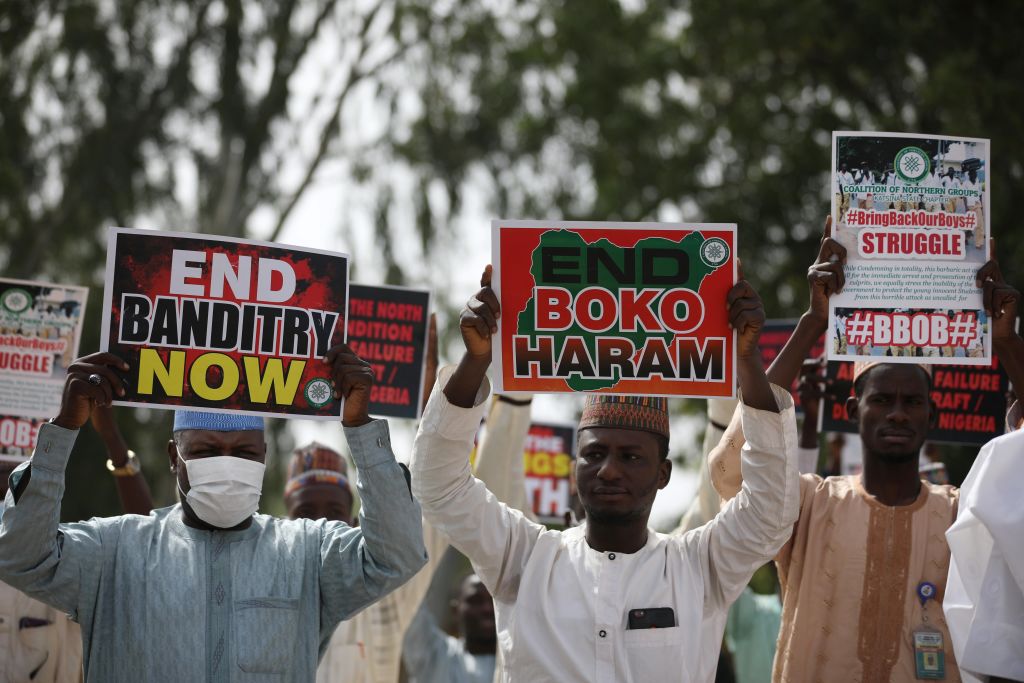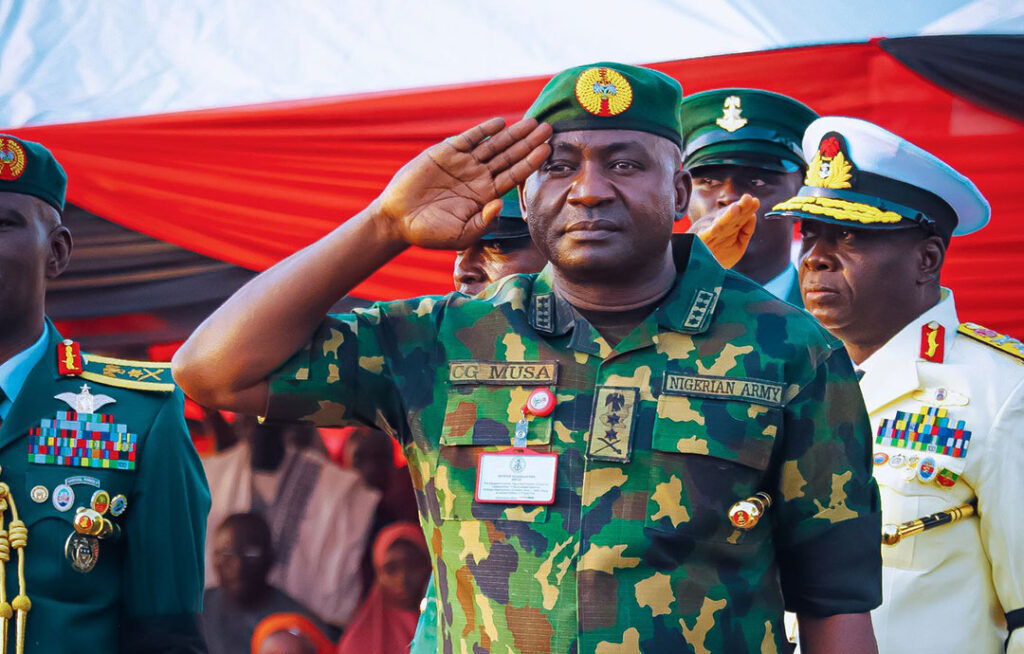ADF STAFF
Nigeria’s Chief of Defence Staff, Gen. Christopher Gwabin Musa, has fond memories of his childhood in Sokoto.
“Growing up as a kid in Nigeria, it was so peaceful,” he told the BBC during a video interview released on March 28. “As junior officers, I remember we would travel all through the night, no harm. So, it is a rude shock what is going on.”
The rude shock for all Nigerians is the scourge of complex, overlapping security challenges in every region of Africa’s most populous country — problems that are Musa’s job to solve.
Nigeria is faced with an extremist insurgency in the northeast, a nationwide rise in banditry, kidnappings for ransom and crime, deadly farmer-herder clashes in the central belt and the northwest, oil theft in the Niger Delta region, piracy along the Gulf of Guinea, and separatist and gang violence in the southeast, where Cameroon’s Anglophone crisis has begun to spill across the border.
Despite the widespread turmoil, Musa has a quiet confidence that Nigeria’s military has identified the root causes of multiple conflicts and is implementing solutions.
“We’re hopeful because we’ve seen positive steps being taken to try and address such issues, and we believe strongly that if we work together as a team — the citizens, the members of the armed forces, the government — everybody putting their hands on deck, we will get over this,” he said.
“For every great nation, you have challenges. It is what you do with them.”

The 14-year extremist insurgency in the north has resulted in more than 40,000 deaths and 2 million displaced. Boko Haram has given way to the Islamic State in the West African Province (ISWAP) as the dominant terrorist group.
“A splinter faction of the original Boko Haram was active until 2021, when ISWAP killed its leader, absorbed its territory and relegated its members to remote islands in Lake Chad,” the Council on Foreign Relations reported. “ISWAP has since established control of northeastern Nigeria and parts of Niger.”
In June 2021, Musa took over as commander of the counterterrorism operation called Hadin Kai. Nigeria took delivery of several Super Tucano attack aircraft from the United States and used them to great effect in bombarding terrorist strongholds and forcing many to surrender or flee.
Musa also accelerated Nigeria’s amnesty and rehabilitation programs, which saw more than 47,975 terrorists and their families surrender, according to The Africa Report magazine.
“Everybody needs to put hands together, support members of the armed forces and the police and ensure that we are able to defeat these insurgents and terrorists,” Musa said. “What we realized, especially for the terrorists, they are trying to win the hearts and minds of the people, to show them they are a better alternative to government. That’s why we say if there’s good governance people will eat, they’ll be healthy, they will have schools to go to, they will have hospitals, they will have good infrastructure. When we have this in place, that will mitigate these challenges.”
Musa also has a lengthy history of serving in the troubled southeast, where Biafra separatists regularly agitate decades after the three-year civil war in the late 1960s. Refugees of Cameroonian separatist violence have complicated security on both sides of the porous border.
In recent months, high-profile incidents such as the deadly ambush on Soldiers in Delta State and the abduction of hundreds of schoolchildren in Kaduna have emphasized the importance of robust security measures.
Musa believes the military will and resources are in place with reinforcements coming. What he stresses the need for is unity and collaboration.
“A lot of the challenges we have in Nigeria are manmade,” he said. “I believe strongly if we come together and say, ‘Look, this thing must stop.’ It is possible to stop and get it right.”

